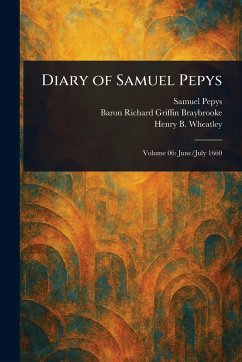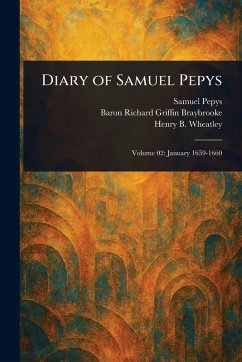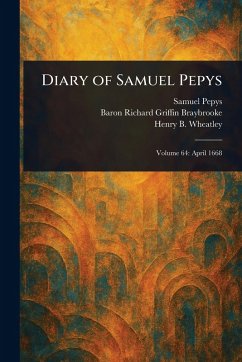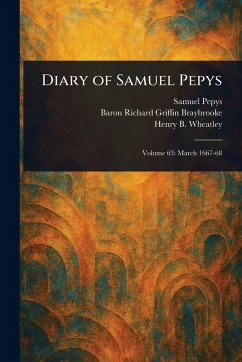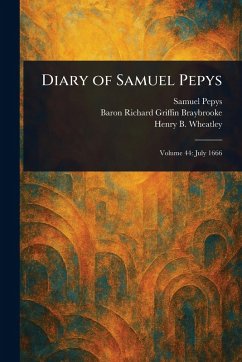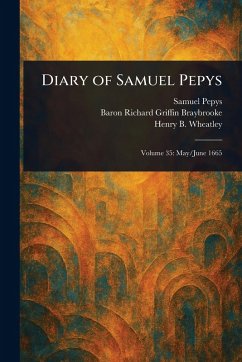
Diary of Samuel Pepys
Versandkostenfrei!
Versandfertig in über 4 Wochen
14,99 €
inkl. MwSt.

PAYBACK Punkte
7 °P sammeln!
Step back in time with "The Diary of Samuel Pepys, February 1667," a fascinating glimpse into 17th-century England. Samuel Pepys, a keen observer of his era, meticulously recorded the details of daily life during the reign of Charles II. This compelling historical source offers a unique window into social history. From the grand events of the court to the intimate moments of domesticity, Pepys's diary reveals the concerns, ambitions, and everyday experiences of a nation undergoing profound change. Explore the political intrigues, social customs, and personal reflections of a pivotal period in ...
Step back in time with "The Diary of Samuel Pepys, February 1667," a fascinating glimpse into 17th-century England. Samuel Pepys, a keen observer of his era, meticulously recorded the details of daily life during the reign of Charles II. This compelling historical source offers a unique window into social history. From the grand events of the court to the intimate moments of domesticity, Pepys's diary reveals the concerns, ambitions, and everyday experiences of a nation undergoing profound change. Explore the political intrigues, social customs, and personal reflections of a pivotal period in British history. This volume provides invaluable insights into the world of Restoration England, making it an essential resource for anyone interested in the history of Great Britain. This work has been selected by scholars as being culturally important, and is part of the knowledge base of civilization as we know it. This work is in the public domain in the United States of America, and possibly other nations. Within the United States, you may freely copy and distribute this work, as no entity (individual or corporate) has a copyright on the body of the work. Scholars believe, and we concur, that this work is important enough to be preserved, reproduced, and made generally available to the public. We appreciate your support of the preservation process, and thank you for being an important part of keeping this knowledge alive and relevant.






